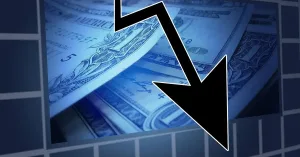Cryptocurrency often sounds complicated, but at its heart, it’s simply a new kind of money that lives online. Many people hear about Bitcoin and other coins but feel unsure where to start or whether it’s safe. If you’re new to this subject, you're not alone, but having clear information can make a big difference. This guide explains what cryptocurrency is, how it works, and what you need to know to use it wisely. Whether you're curious about how to buy your first coin, how to store it safely, or how people spend or trade it, you'll find practical answers here. Take your time, learn the basics, and see if cryptocurrency makes sense for you and your goals. Let’s dive into this article:
What Is Cryptocurrency?
Cryptocurrency is a type of money that only exists electronically. There are no physical coins or notes. The most common example is Bitcoin, but there are thousands of other kinds, like Ethereum, Litecoin, and Solana.
Unlike traditional money that banks and governments control, cryptocurrencies rely on a system called blockchain. A blockchain is a record of transactions kept by many computers around the world. These computers agree on the details of each transaction, so there’s no need for a single bank or authority to keep everyone honest.
People are interested in cryptocurrency for many reasons. Some like the idea of money that isn’t controlled by one country. Others see it as an investment. Some people use it to send money across borders quickly. Others use it to buy things online.
How Does Cryptocurrency Work?
Cryptocurrency works because of a few simple ideas:
- Decentralization: No single company or government controls the money.
- Blockchain: Every time someone sends or receives crypto, that action is added to a public list that anyone can check.
- Security: Advanced math, called cryptography, keeps transactions secure. Only the owner of the coins can spend them.
When you own cryptocurrency, you have a “key.” This key is like a long password that proves you own the coins in a certain account. If you lose this key, you lose access to your coins forever. This is one reason people must store their keys safely.
Common Cryptocurrencies You Should Know
There are thousands of cryptocurrencies, but here are a few worth knowing:
- Bitcoin (BTC): The first and most well-known crypto. Many see it as “digital gold.”
- Ethereum (ETH): Famous for its smart contracts. These are self-running programs that work on the blockchain.
- Tether (USDT): A “stablecoin” whose value is tied to the US dollar. It’s used when people want to avoid crypto price swings.
- Litecoin (LTC): Similar to Bitcoin but designed for faster transactions.
How to Get Cryptocurrency
There are a few common ways to get your first cryptocurrency:
1. Buy from an Exchange
This is the most common way. Exchanges are websites or apps where you can buy crypto with your local currency. Some popular exchanges are Coinbase, Binance, Kraken, and Bitstamp.
To use an exchange, you’ll usually need to:
- Create an account.
- Prove your identity (upload an ID).
- Link a bank account or card.
- Buy the crypto you want.
Be sure to choose a well-known exchange with good security.
2. Get Paid in Crypto
Some freelancers and businesses accept payment in crypto. If you do work online, you can ask clients to pay you in Bitcoin or another coin.
3. Mine It
Mining means using your computer's power to help run the blockchain. In return, you get small amounts of cryptocurrency. People mostly do this with powerful computers and cheap electricity. Today, mining Bitcoin is challenging for beginners due to intense competition, but some smaller coins remain feasible to mine at home.
Where to Store Cryptocurrency
Once you buy crypto, you need to store it safely. There are two main options: hot wallets and cold wallets.
1. Hot Wallets
A hot wallet is a wallet connected to the internet. Examples include:
- Mobile apps (like Trust Wallet or Coinbase Wallet)
- Web wallets (on an exchange)
Hot wallets are easy to use, but if someone hacks your device or gets your password, they can steal your coins.
2. Cold Wallets
A cold wallet is not connected to the internet. Examples include:
- Hardware wallets (like Ledger or Trezor)
- Paper wallets (a piece of paper with your key written on it)
Cold wallets are safer from hackers, but you must not lose them. If you lose the device or paper and didn’t back up your keys, your coins are gone.
How to Keep Your Crypto Safe
Many people lose crypto because of scams or mistakes. Here are simple tips to protect yourself:
- Use strong passwords and two-factor authentication (2FA) on your Exchange accounts.
- Never share your private key with anyone. Not even customer support should ask for it.
- Keep backups of your wallet in safe places.
- Beware of phishing emails. Always double-check website links.
- Do research before sending money to someone you don’t know.
How to Use Cryptocurrency
You can use cryptocurrency in several ways:
1. Spend It
Some shops and websites accept crypto as payment. Companies like Microsoft and some airlines accept Bitcoin. Many people use crypto to shop online or send money to family in other countries.
2. Invest or Hold
Many people buy crypto and hold it for years, hoping its value will grow. This is called “HODLing” (a funny word for “holding”).
Keep in mind that crypto prices can go up and down quickly. Only spend money you can afford to lose.
3. Trade
Some people trade crypto like stocks, hoping to make a profit from price swings. This can be risky and needs careful learning and practice.
4. Earn Rewards
Some coins let you earn rewards by “staking.” This means you agree to lock up your coins for a while to help run the network. In return, you earn more coins.
Risks of Cryptocurrency
It’s important to know the risks. Cryptocurrency is new compared to traditional money, so it can be more volatile. The price of Bitcoin, for example, can rise or drop by thousands of dollars in a day.
Crypto is also less regulated than banks. If you lose your money in a scam, it’s hard to get it back. There’s no bank you can call for help. That’s why learning the basics is so important before you invest or spend money.
Laws and Taxes
In many countries, cryptocurrency is legal to buy and sell, but you must report it for taxes. Profits you make from trading or selling crypto are often taxed like stock gains.
Before you buy crypto, check your local laws. Some countries have strict rules or even bans on crypto trading.
Good Habits for Beginners
If you’re new to crypto, here are a few smart steps to follow:
Start Small: Don't put all your savings into crypto. Begin with a small amount to learn how buying, storing, and selling work.
Learn the Basics: Before investing more, understand what you’re buying. Read about how blockchain works. Follow news from trusted sources.
Use Trusted Wallets and Exchanges: Stick with well-known companies that have a record of keeping customers’ money safe.
Keep Your Private Key Safe: Write it down and store it somewhere only you can reach. Consider a fireproof safe for backup copies.
Watch Out for Scams: If something sounds too good to be true, it probably is. Avoid “get rich quick” schemes or offers from strangers.
The Future of Cryptocurrency
While no one knows exactly what will happen next, crypto has already changed how some people think about money. More businesses accept it every year. Governments are exploring how to regulate it or even create their own versions called Central Bank Digital Currencies (CBDCs).
Whether you plan to spend crypto, hold it as an investment, or just watch from the sidelines, understanding the basics helps you make better choices.
Final Thoughts
Cryptocurrency may seem complex at first, but with careful steps, anyone can learn how it works and how to use it wisely. Take your time to research, start with small amounts, and always protect your keys and accounts. This way, you can explore this new type of money with confidence.
Remember, the key to handling cryptocurrency is caution and knowledge. There’s no rush. Keep learning, stay informed, and enjoy the process of understanding this modern way to move and store value.
References
https://www.coursera.org/articles/how-does-cryptocurrency-work
https://www.mintos.com/blog/cryptocurrency-for-beginners/
https://www.nerdwallet.com/article/investing/cryptocurrency
https://academy.binance.com/en/start-here
https://n26.com/en-fr/blog/what-is-cryptocurrency
https://www.stash.com/learn/how-to-invest-in-cryptocurrency/
https://www.investopedia.com/terms/c/cryptocurrency.asp
https://academy.binance.com/en/articles/a-complete-guide-to-cryptocurrency-trading-for-beginners




















Add comment